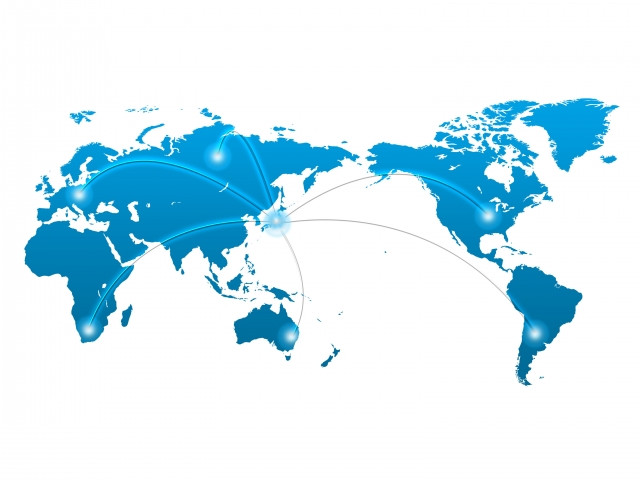Filipino students usually wonder what it’s like to study in Japan. From the close relationship between the two Asian countries stems a huge possibility of realizing such dreams. Through government or institutional-based exchange programs, Filipino students are given the equal opportunity to study in the Land of the Rising Sun.
Table of Contents
- Bilateral relations of Japan and Philippines
- Student exchange programs between Japan and Philippines
- Government Programs
- Institution-based Programs
- Applying for student exchange programs
- Summary
Bilateral relations of Japan and Philippines
Japan and the Philippines have established a deep-seated historical relationship that continues up to this date. Even before World War 2, Japanese business interests were already present in the Philippine islands. The relationship intensified even after World War 2 despite the events that took place during the war. Diplomatic agreements were made between the two Asian countries that are geared towards mutual benefit. Since then, numerous investments were done by the Japanese government as well as Japanese companies that helped the Philippines in establishing its economy. An economic agreement such as the Japan-Philippine Economic Partnership Agreement in 2007 is just one example of the contemporary manifestations of the relationship between the two countries that blossomed into direct economic growth for both.
※ Senate of the Philippines, "Japan-Philippines Economic Partnership Agreement (JPEPA): An Assessment," p.1 ※ Ministry of Foreign Affairs of Japan,"Japan-Philippines Relations (Basic Data)"
Writer's Pick
Student exchange programs between Japan and Philippines
There are two major categories by which student exchange programs between Japan and the Philippines fall under: government-based and institution-based. For the former, the program is primarily operating under the administration and mandate of a particular government body. For example, Japan’s Ministry of Education, Culture, Sports, Science, and Technology or MEXT offers an array of exchange and scholarship programs, allowing high school, undergraduate, and graduate students to go and study in Japan. Others would be the Japan Foundation’s cultural exchange programs.
On the other hand, institution-based exchange programs are implemented by non-government institutions and private educational institutions that provide exchange programs or other short-term study programs in Japan for students. One example would be Japan International Cooperation Center’s JENESYS program and Japan International Cooperation Agency’s Japanese studies exchange program. Each will merit an in-depth analysis below.
Take note that these exchange programs are not entirely exclusive to the Philippines because the implementing agencies also have their partnerships and agreements with other countries.
Government Programs

Young Leaders Program
The most notable exchange program offered under the Ministry of Education, Culture, Sports, Science, and Technology (MEXT). It specifically targets young professionals in their fields such as business, law, local governance, and public administration to study a master’s program in one of Japan’s universities.
Under YLP, participants are guaranteed a 242,000 yen monthly stipend, education expenses, transportation expenses and other expenses such as accommodation.
※ Embassy of Japan in the Philippines, "Application Guidelines - Japanese Government (MEXT) Scholarship for 2020 -Young Leaders' Program (YLP) Student (School of Local Governance)," p.2
In the Philippines, there are 6 institutions considered as recommending authorities. These institutions will be in charge of processing applications. Here are the institutions with their respective field(s) of coverage:
-
Business
-
Junior Chamber International Philippines
-
Management Association of the Philippines
-
-
Law
-
Ateneo De Manila Law School
-
University of the Philippines-College of Law
-
-
Local Governance
-
Civil Service Commission
-
University of the Philippines-National College of Public Administration and Governance
-
-
Public Administration
-
Civil Service Commission
-
※ Embassy of Japan in the Philippines, "2019 Young Leaders Program Now Open for Applications"
Institution-based Programs
Japan-East Asia Network of Exchange for Students and Youths (JENESYS Programme)
JENESYS program was launched in 2007 that operated under non-governmental implementing agencies. It fosters cultural connections between Japan and other East Asian countries including the Philippines. Since its establishment, more than 4,000 Filipino students have participated in the program. Under the JENESYS program, participants will be provided financial support for their transportation and general expenses related to their trip.
Examples of recent exchange programs under the JENESYS are the Nihongo and Japanese Culture Exchange Program, the Young Diplomatic Exchange Program, and Youth Exchange for Media Industry.
Nihongo and Japanese Culture Exchange program is exclusive for Filipino high school students. Through the exchange program, participants will engage in various activities such as visiting cultural places in Japan as well as the rehabilitation areas in Japan after the Great East Japan Earthquake of 2011.
※ Embassy of Japan in the Philippines, "42 Participants fly to Japan for JENESYS Programme"
Meanwhile, the Young Diplomatic Exchange Program is exclusive for young professionals working in the Philippine government, specifically the Department of Education and the Department of Foreign Affairs. Participants of this exchange program will go to Japan for cultural activities and institutional observations, that in turn, could be helpful in expanding their appreciation of Japan, promoting the mutual understanding between individuals, and among nations about everything Japan, with one of the particular focus in forming firmer diplomatic relationships.
Lastly, the Youth Exchange for Media Industry is an exchange program dedicated to students of journalism and media studies. Upon arrival in Japan, participants get involved in various activities relevant to the media industry. They are immersed in the existing conditions of media in Japan and are allowed to share their experiences regarding the discipline as well.
University-based exchange programs

Many Japanese universities have established firm connections with some of the universities in the Philippines. It is through such a partnership that their exchange programs push through. Students and faculties are given equal opportunities to participate in such exchange programs. For university-based exchange programs, the arrangement is exclusive to the existing agreement between partner universities. Moreover, the very nature of exchange programs may vary across different academic disciplines. To name a few, here are some of the examples of Japanese universities with their respective partner institutions in the Philippines along with the field of prospective exchange:
-
University of Tokyo
-
Central Luzon State University: Agriculture & Life Sciences
-
University of the Philippines: Economics
-
-
Kyushu University
-
Ateneo De Manila University
-
University of the Philippines
-
-
Kyoto University
-
Ateneo De Manila University: Business Management, Southeast Asian Studies
-
Development Academy of the Philippines: Southeast Asian Studies
-
Isabela State University: Disaster Prevention
-
University of the Philippines: Economics
-
University of San Carlos: Southeast Asian Studies
-
University of Sto. Tomas: Chemical Research
-
Applying for student exchange programs
Eligibility requirements for each exchange program may differ from one another. This is due to the scope of the exchange program. For example, some exchange programs may be exclusive to students or professionals. Students are sometimes filtered by their academic status since some exchange programs, especially university-based programs, may have grade requirements.
On the other hand, programs exclusive for professionals may set specified years of work experience. Some may have age requirements as well. Other countries may have a different set of requirements for these programs but all exchange program agreements between Japan and the Philippines have common requirements; to begin with, it is solely for Filipino citizens when applying for the programs from the Philippines.
Furthermore, application procedures also vary. There are two kinds of applications: invitational and open. Usually, university-based programs are invitational since they are only restricted for students enrolled in a certain academic year with specific academic status. In contrast, government and some non-government exchange programs, applications are open to all as long as their eligibility requirements are met.
Summary

These various kinds of exchange programs open up an opportunity for Filipinos to engage in activities in Japan. As these exchange programs operate under the bilateral partnership of Japan and Philippines, it promises the furtherance of the connection. In the long run, individuals who participated in one of these programs are definitely prepared to pass on the persisting intimacy of the Japan-Philippines alliance to the future generation.


































